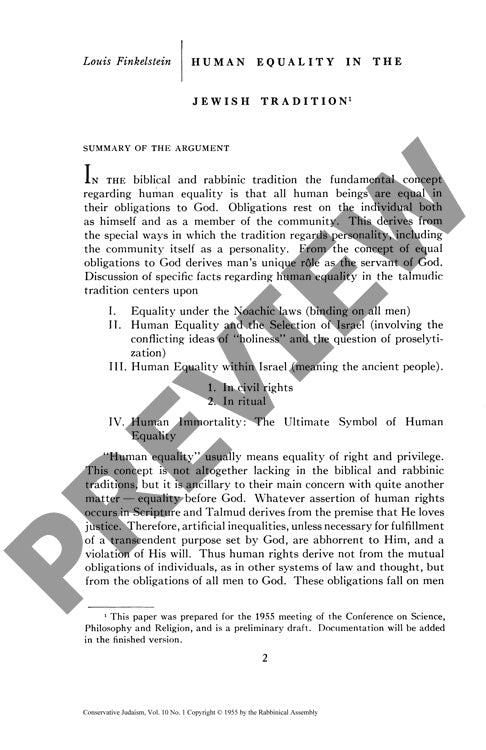Human Equality in the Jewish Tradition
Couldn't load pickup availability
Jewish tradition conceptualizes human equality through a radical lens - not as mutual rights between individuals, but as universal obligations to God. Through systematic examination of scriptural and talmudic sources, including theological concepts, legal frameworks, and interpretive traditions, four key dimensions emerge: the universal binding of Noachic laws, the tension between human equality and Israel's selection, civil rights and ritual participation in ancient Israel, and human immortality as equality's ultimate symbol. While conventional equal rights exist within Jewish thought, they remain subsidiary to the central principle of equal standing before God. Human dignity derives fundamentally from divine service rather than inherent individual rights, with justice flowing from equality rather than the reverse. The tradition maintains that all humans share equal obligations as servants of God, regardless of natural inequalities in abilities or circumstances, while holding paradoxical concepts of personality wherein individuals exist both as separate beings with distinct responsibilities and as emanations of Divine purpose. This theological framework offers a distinctive alternative to rights-based equality systems, establishing human dignity through shared obligations to transcendent purpose rather than through individual entitlements.

More Information
-
Physical Description
-
Publication Information
Published 1955
ISBN
-
Publication Credits
Louis Finkelstein

